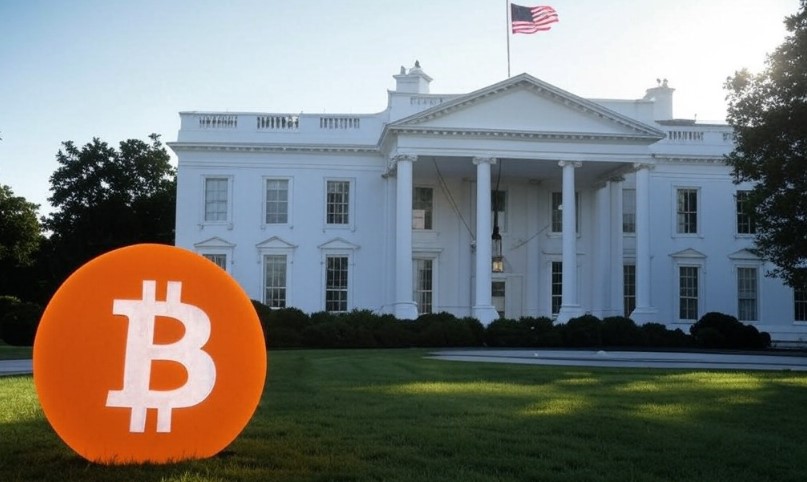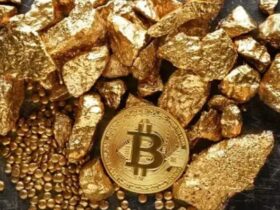With a reserve in BTC, the United States could reaffirm its leadership in financial innovation.
Dozens of countries will understand why it is strategic to have a bitcoin reserve.
Driven by Donald Trump’s promises to create a strategic reserve of bitcoin (BTC) for the United States, the cryptocurrency market is experiencing exponential growth in interest. At least nine countries on four continents have expressed their intention to establish a national treasury based on the pioneering digital currency, marking the takeoff of a trend that is just taking its first steps.
In addition to El Salvador, which already has a bitcoin reserve, announcements have come from the United States, Chile and Brazil, with the latter with legislative initiatives to diversify its international reserves with the digital currency. In Europe, Germany, Czechia, Poland and Switzerland have shown interest in exploring the inclusion of bitcoin in their strategic reserves. While, from Asia, Hong Kong is determined to move towards that path; and in Russia, lawmakers are discussing the possibility of establishing a national reserve in BTC.
With the arrival of Trump to the presidency of the United States, the North American country could soon join El Salvador as the second to adopt a bitcoin reserve, and from there, the next step in the evolution of the adoption of cryptoasset.
A race will be unleashed by states wishing to establish strategic reserves. It is important to note that the US, being the world’s largest economy, is targeting the digital currency as a way to beat its political and economic competitors like China, thus elevating bitcoin into the realm of the geopolitical game of domination. This will produce a pivotal movement that will ultimately drive acceptance of the asset created by Satoshi Nakamoto, serving as a clear indicator of the integration of digital assets into the traditional economy.
FOMO (Fear Of Missing Out), or fear of being left out of a financial investment that would cause the loss of potential profits, will pressure states in a wave of interest that will spread as more governments seek to adopt the digital asset to include it in your reservation.
It would be the moment when dozens of countries around the world understand why it is truly strategic to have a bitcoin reserve. For example, El Salvador illustrates how FOMO can influence national policies. In that sense, the first country to adopt a BTC treasury and which currently already owns more than 6,000 digital currencies has several reasons to consider bitcoin as a strategic asset for its reserves.
Among these reasons, three of them stand out:
First: A strategic bitcoin reserve not only positions a nation as a leader in financial innovationbut also prepares it for the transition towards a digital economy, reflecting an adaptability and vision towards the future of global finance.
Second: It could be used as a strategy to manage the national debt, considering that bitcoin has a limited supply, which is in stark contrast to the inflation of fiat currencies. This feature could turn it into a reserve asset with a potentially increasing value, offering a stable alternative with ample possibilities of appreciation over time.
Third: Lead in Bitcoin adoption can position a country as a magnet for technological investments. For the United States, this status is especially significant as Trump shows a broader interest in fostering an entire industry around the digital currency, encompassing both Bitcoin mining and software development.
Currently it has the advantage that the United States leads Bitcoin mining, accumulating more than 40% of the global hashrate. This gained momentum especially following the migration of operations from China due to restrictions there, with states like Texas attracting miners thanks to its favorable regulation, cheap energy and suitable climate, which not only strengthens the Bitcoin network but also boosts employment and technological development in the country.
In parallel, the US has positioned itself as a center of innovation in software development, leading in the creation of decentralized applications, smart contracts and more, with US companies and startups at the forefront of this growth.
Trump’s impact: a chain reaction with Bitcoin
Personally, I think we are unlikely to see the United States adopt bitcoin as part of its reserve immediately, given the complex political landscape. However, if this were to happen, global FOMO would be inevitable.
The creation of a strategic bitcoin reserve by the United States could trigger a domino effect. This phenomenon occurs when a change in one country causes chain reactions in others, similar to dominoes falling one after another.
It would not be the first time that this type of reaction occurs, since In the past, the United States adopted technological strategies that were later widely followed by other countries. Two of them were:
– Internet:
The Internet in the United States emerged from ARPANET in the late 1960s, but mass adoption did not begin until the 1990s; In 1991, only 0.001% of the world’s population had access to the Internet, with slightly higher penetration in the US, which by 1997 had reached 18% of its population, driven by companies such as AT&T.
By 2010, internet penetration in the US was 79%, with 245 million users, while globally, access had grown from less than 1% in 1995 to more than 30% in 2010, a model that many countries followed, especially in Latin America and Europe. Today, more than 5.5 billion people, or 70% of the world’s population, have access to the Internet, demonstrating America’s pioneering leadership in technology with significant global impact.
-GPS:
GPS, developed by the US Department of Defense in the 1970s, had limited civil and commercial use until the 21st century, but by 2010, approximately 5% of vehicles in the US were using GPS. GPS-based navigation systems, inspiring other countries to create their own systems such as Galileo in Europe, GLONASS in Russia and BeiDou in China.
Currently, GPS is fundamental to the global economy, facilitating everything from vehicle navigation to the synchronization of telecommunications networks, with an economic impact estimated at more than 1.4 trillion dollars annually.
These precedents show how the United States can lead the way in technology policies, anticipating that a bitcoin reserve could have a similar impact.
Bitcoin adopted by States as a reserve: a global change
So, in short, the adoption of innovative policies by the US has undoubtedly had a profound impact, as has been historically demonstrated. And there is no reason to doubt that such a thing will not happen with bitcoin, an asset that will therefore boost adoption, as its global acceptance and regulation also skyrockets.
However, while the possibility of a bitcoin reserve being created in EThe United States could change perceptions and take cryptoasset adoption to another levelit is also true that for countries to have a reserve in BTC, it will be imperative that they adapt and shape legislations to their unique contexts. Therefore, it is likely that we will be waiting a long time for all this to happen. Meanwhile, some countries may be focused solely on accumulating bitcoin to expand their reserves, while the US will be busy focusing on a more holistic strategy.
He will take advantage of his advantage to position itself as the undisputed leader in the Bitcoin ecosystemsimilar to how it has led in other technology industries. It will design its own model, including regulation of the sector, influencing other parts of the world.
If it follows this comprehensive path, America’s influence in the Bitcoin space could be as momentous as it was with the Internet and GPS. That is why the decision of the North American nation to adopt Bitcoin as a strategic reserve can redefine the value and perception of the digital currency worldwide, and at the same time, lay the foundations for a new era of economic and technological innovation, where Power and influence will now be measured in bits and bytes, not just gold and dollars.
Disclaimer: The views and opinions expressed in this article belong to its author and do not necessarily reflect those of CriptoNoticias. The author’s opinion is for informational purposes and under no circumstances constitutes an investment recommendation or financial advice.






Leave a Reply